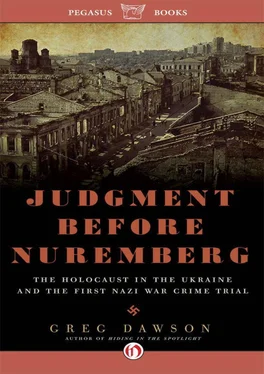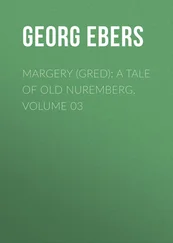A gold watch, the turn of a soldier’s head, and she was gone. Zhanna Arshanskaya, fourteen years old, the coat off her father’s back to resist the Russian winter, bolted from the sad column of marching Jews and disappeared into the landscape.
Something my mother said in the interview supplied the headline for the front-page story: “My father didn’t think anything could be so savage.”
My story ran the week Holocaust aired. Writing in Time magazine, critic Frank Rich called the miniseries “an uncommonly valuable achievement… likely to awaken more consciences to the horrors of the Holocaust than any single work since Anne Frank’s diary nearly three decades ago.”
He was correct. Holocaust proved to be a powerful catalyst in America for adding the Holocaust to secondary school textbooks, and in West Germany—where it drew enormous ratings—the miniseries triggered the first national conversation about the Holocaust since the end of the war, forcing Germans to confront pent-up demons and repressed guilt.
The impact was less profound for me and, as far as I could tell, my mother. There was no change in our relationship, which consisted of weekly phone calls and occasional trips to her home in Atlanta, where she moved in 1981. From time to time in ensuing years, as a columnist and later a TV critic, I would call and do a brief interview for a piece I was writing. In 1980, I spoke to her about Playing for Time , a CBS movie based on the true story of a prisoner who played in a band at Auschwitz—a story similar to her own. Just like two years earlier when she had told me her story for the first time, her recounting was vivid, colorful, and detailed, but not emotional—for either of us. Not once had she paused, unable to go on. Nor had I.
Perhaps this steely ability to maintain focus, to block out all intervening thoughts and feelings, simply was the discipline of an artist trained to keep going no matter what—as Dmitri Arshansky had trained his daughter, having six-year-old Zhanna practice in a darkened room so she would learn to play without looking at the piano keys. Or perhaps her eerie equanimity when we spoke of the past was something else altogether, akin to my own.
Not until after Hiding in the Spotlight was published in 2009 did I become aware of an entire genre of literature which had sprung up over the previous two decades or so—memoirs by people like me, children of Holocaust survivors. They even had a collective name, Second Generation Survivors. It turned out there were Second Generation clubs and associations everywhere , yet somehow they had escaped my notice.
Not long after my book came out, I attended a reading at the Holocaust Center in Maitland, a suburb of Orlando, by Alan Berger, a Holocaust scholar at Florida Atlantic University in Boca Raton. We traded books. I gave him Hiding in the Spotlight, he signed a copy of Second Generation Voices: Reflections by Children of Holocaust Survivors & Perpetrators, a collection of essays he edited with his wife, Naomi. It was my first exposure to this discrete universe of memory and suffering, and it left me feeling very much the outsider.
For me the most haunting essay was “The Lifelong Reporting Trip” by Julie Salamon, the author of several Holocaust-themed books including a novel, White Lies, and a memoir, The Net of Dreams: A Family’s Search for a Rightful Place. Like me, Salamon was a journalist and Second Generation Survivor who grew up in the placid Midwest—southern Ohio, on the river—but both her parents were survivors.
“My parents raised me to be optimistic, to believe in goodness, the future, the possibility of beauty and love,” she wrote in her Reflections essay. “Yet, they didn’t hide their background from us, so we were also well aware of evil, no hope for the future, the reality of ugliness and hate.” She recalled her “public declaration” as a child of survivors in 1979 in a review of Helen Epstein’s book Children of the Holocaust that she volunteered to write for the Wall Street Journal, where she was covering the commodities market.
In the review, she wrote of being obsessed with concentration camps when she was young. “I read Exodus by Leon Uris for the first time when I was seven, lingering over his renditions of what happened to people in concentration camps. My dreams were filled with visions of mangled and bloodied Jewish bodies. I substituted fictional victims with my mother and father and would cry out in the night for Mommy and Daddy. I never told my parents why I cried so often at night. I’m not sure why.”
All the essays in the collection echoed Salamon’s. They left me profoundly grateful for the gift of my Mickey-Mantle-Flubber childhood. Unlike my mother’s decision to stop speaking Russian to me, withholding her story was a good decision in the short and, especially, the long run. As a child, I had a recurrent nightmare of falling down the long, dark set of stairs in our first home in Bloomington. I can also recall a sharp sense of foreboding while waiting for my parents to return home at night after a party or concert, though they had been gone only a few hours, and always returned. On the whole, however, mine was an untroubled, blue-sky childhood. As a teenager and young adult, when many “Second Gens” began to experience delayed trauma from corrosive childhood memories, my subconscious was blessedly tabula rasa.
This, I believe, is why hearing my mother’s story for the first time at age thirty did not faze or unsettle me. By then I was a husband and father with fully developed emotional armor. I was able to listen to my mother’s story with nearly the same detachment as that of a stranger—then put it in a mental drawer and move on. Over the next fifteen years my wife, Candy, and journalism mentor, Bob Hammel, continually urged me to open the drawer and make the story into a book.
I continually resisted—on the grounds that I did not have the time; that my mother would not sit for more interviews (even though she had opened up, there was so much she still would not speak of); that I was a columnist, not a book writer, and I feared my own mother becoming the victim of a literary lab experiment gone horribly wrong—the Survivor Bride of Frankenstein. Whatever my grounds for resisting, conscious or buried, it would take a middle-school class assignment years later to unlock my mother’s emotions and compel me to open the drawer once again.
In 1994 our daughter, Aimee, was in eighth grade at Glenridge Middle School in Winter Park, near Orlando. She was fortunate to have a man named Ron Hartle as her history teacher, a passionate dynamo known for multimedia presentations that brought any subject to life. One day Aimee came home with an assignment from Mr. Hartle. Each student was to ask a grandparent, or other older relative, what their life had been like at the same age.
Aimee, thirteen, decided to ask “Zee,” as she affectionately called my mother, about her teenage experiences. “Good luck with that!” we thought. Aimee knew little about her Russian grandmother’s early life beyond the fact that she’d come to America after the war, and even less about the Holocaust. She had no idea “Zee” had been caught up in the Holocaust at age fourteen and was not eager to discuss that part of her life. So Aimee forged ahead.
“Dear Grandma (Zee): Hi, how are you doing? I hope everything is going well for you right now. I am writing this letter for a school history project we are doing. The project is to find out as much as possible about our grandparents, and what was going on when they were about 13 years old. I know some about your life then, but I would love to hear more. Some specific things I would like to know are what life was like overall in about 1940. What was your home life like? Also, what are some major world events that you remember from around that time? I look forward to hearing from you, and hope to see you soon. Love, Aimee Dawson.”
Читать дальше












